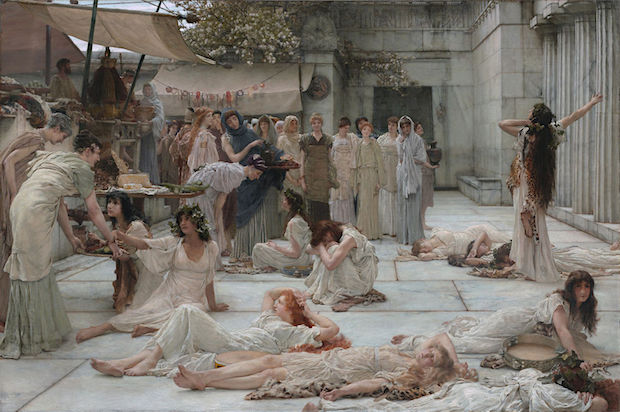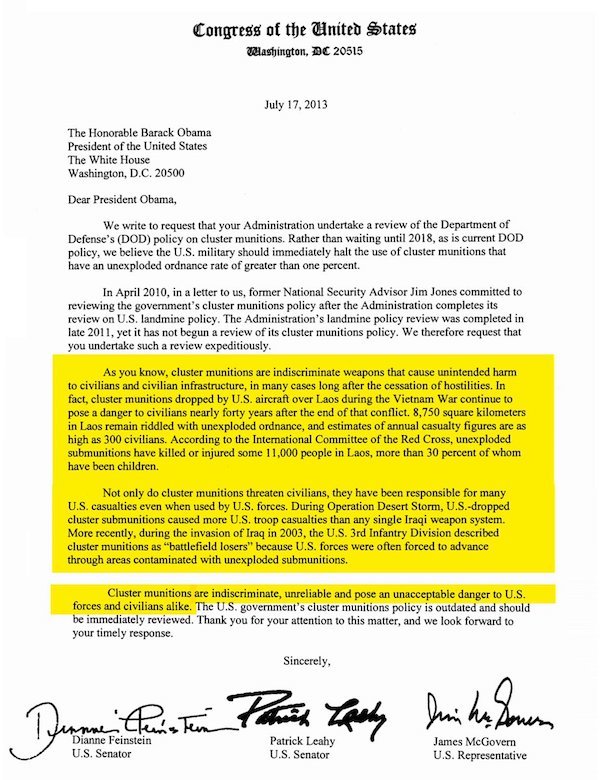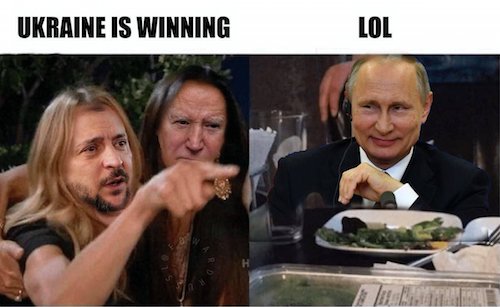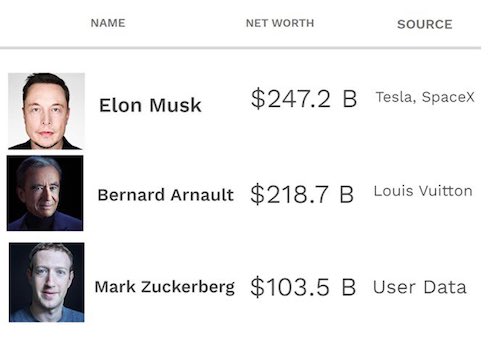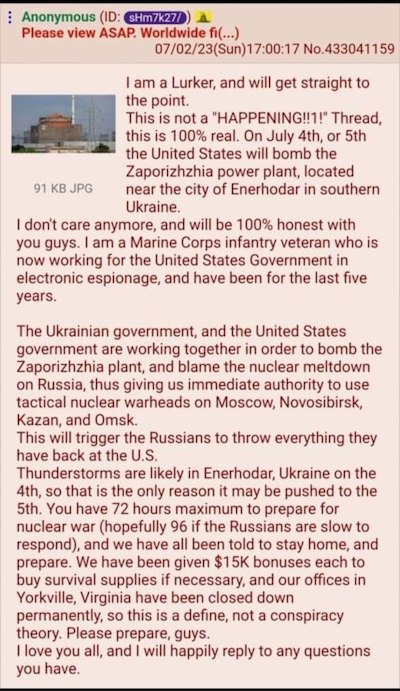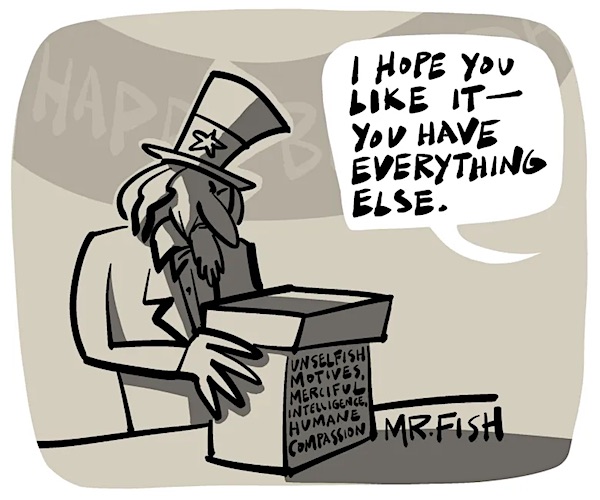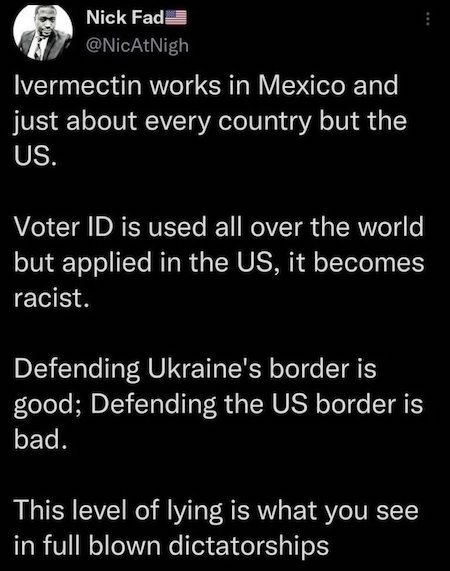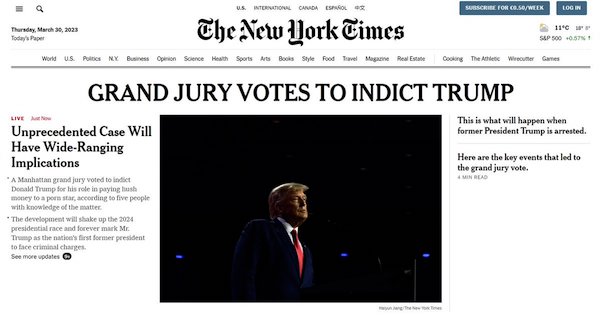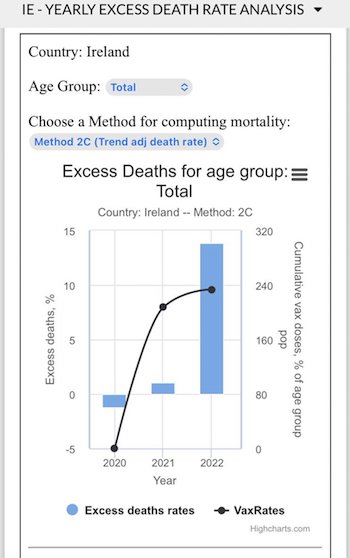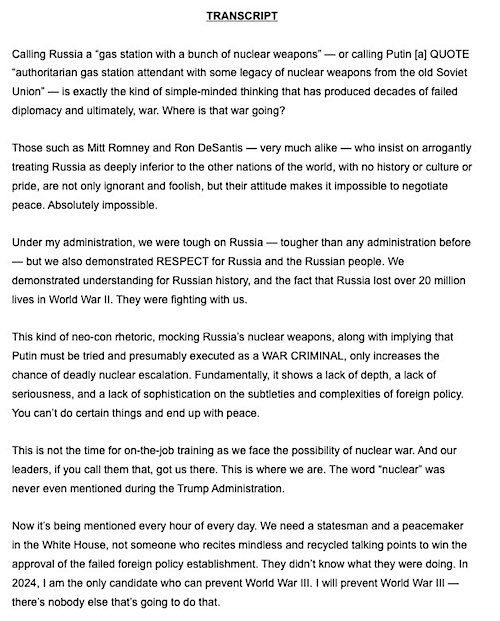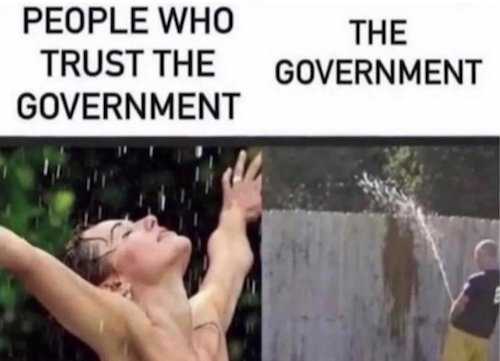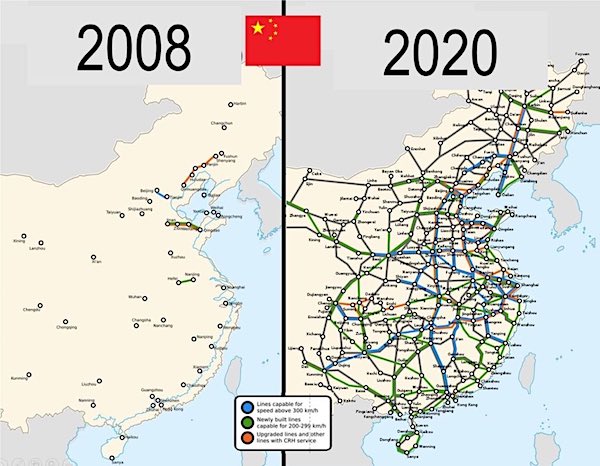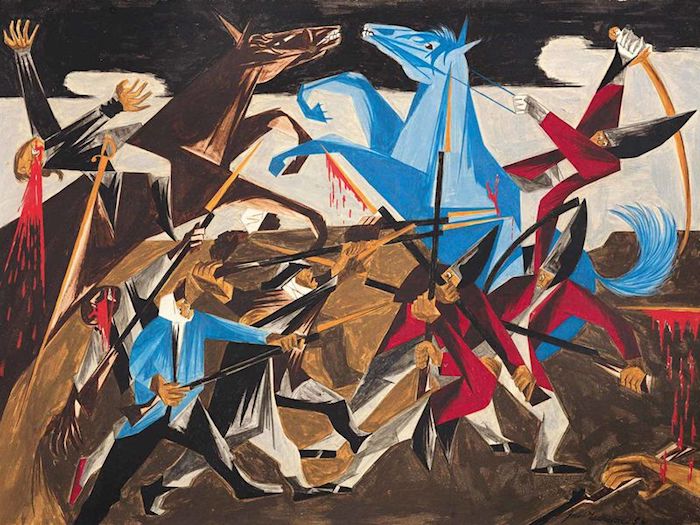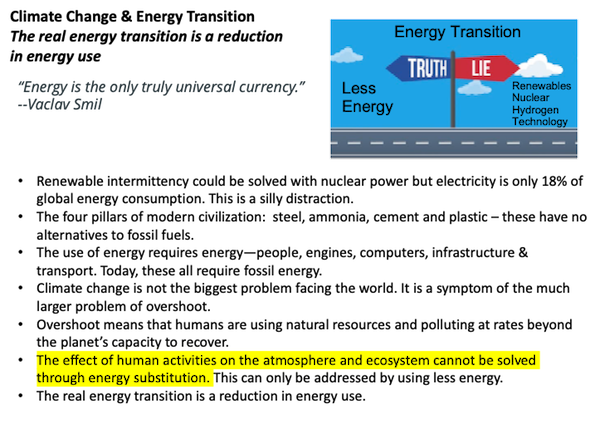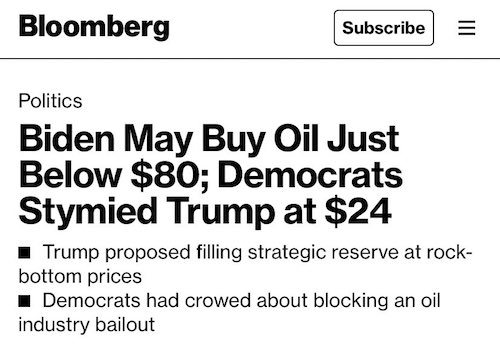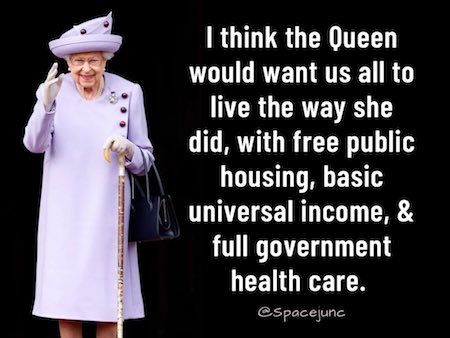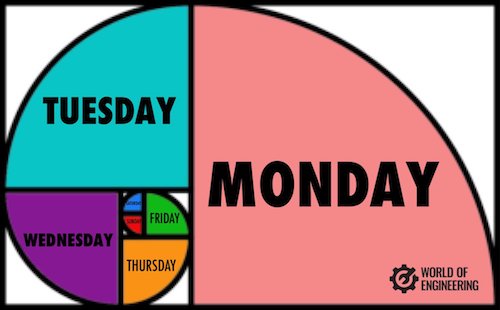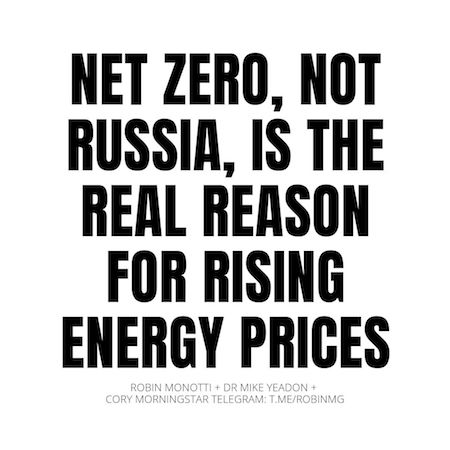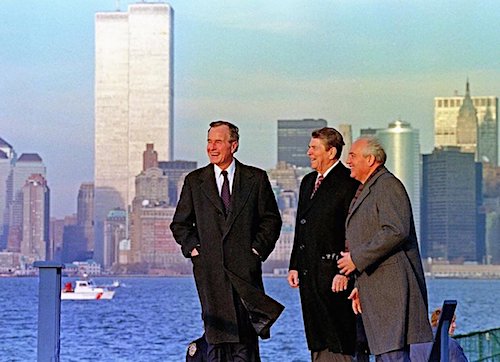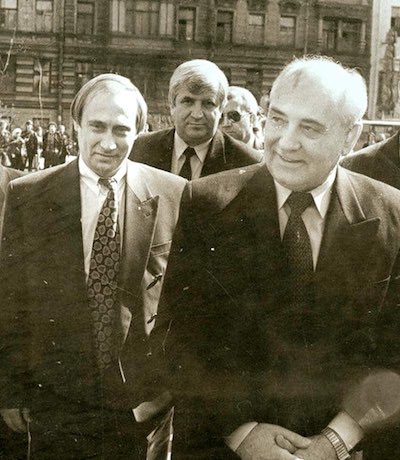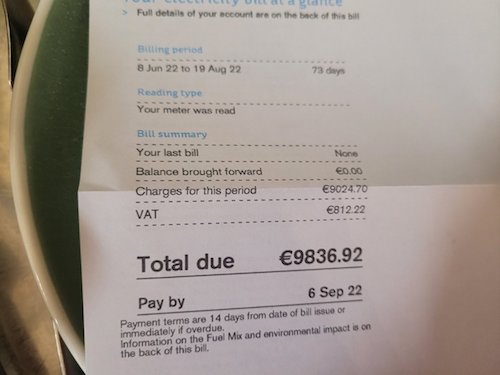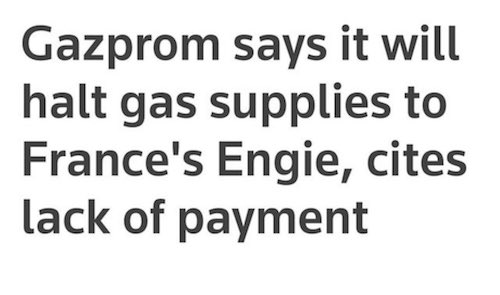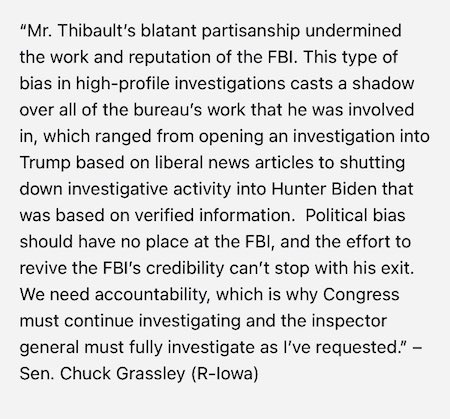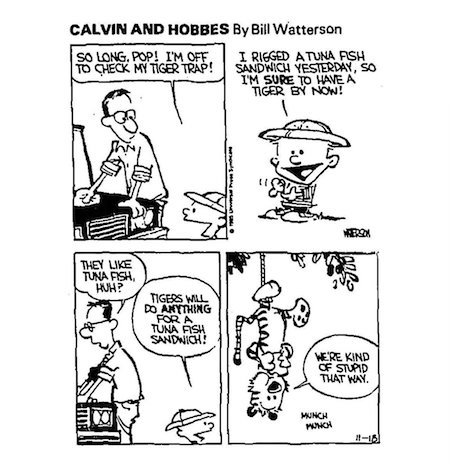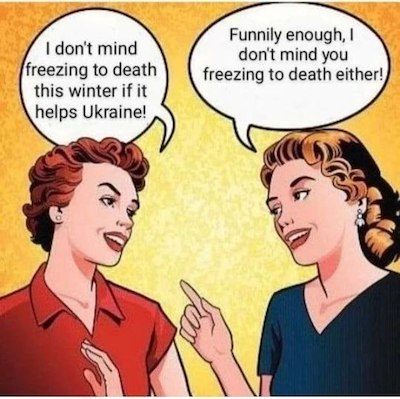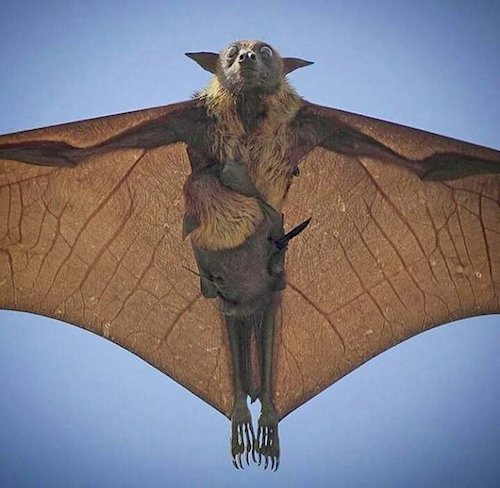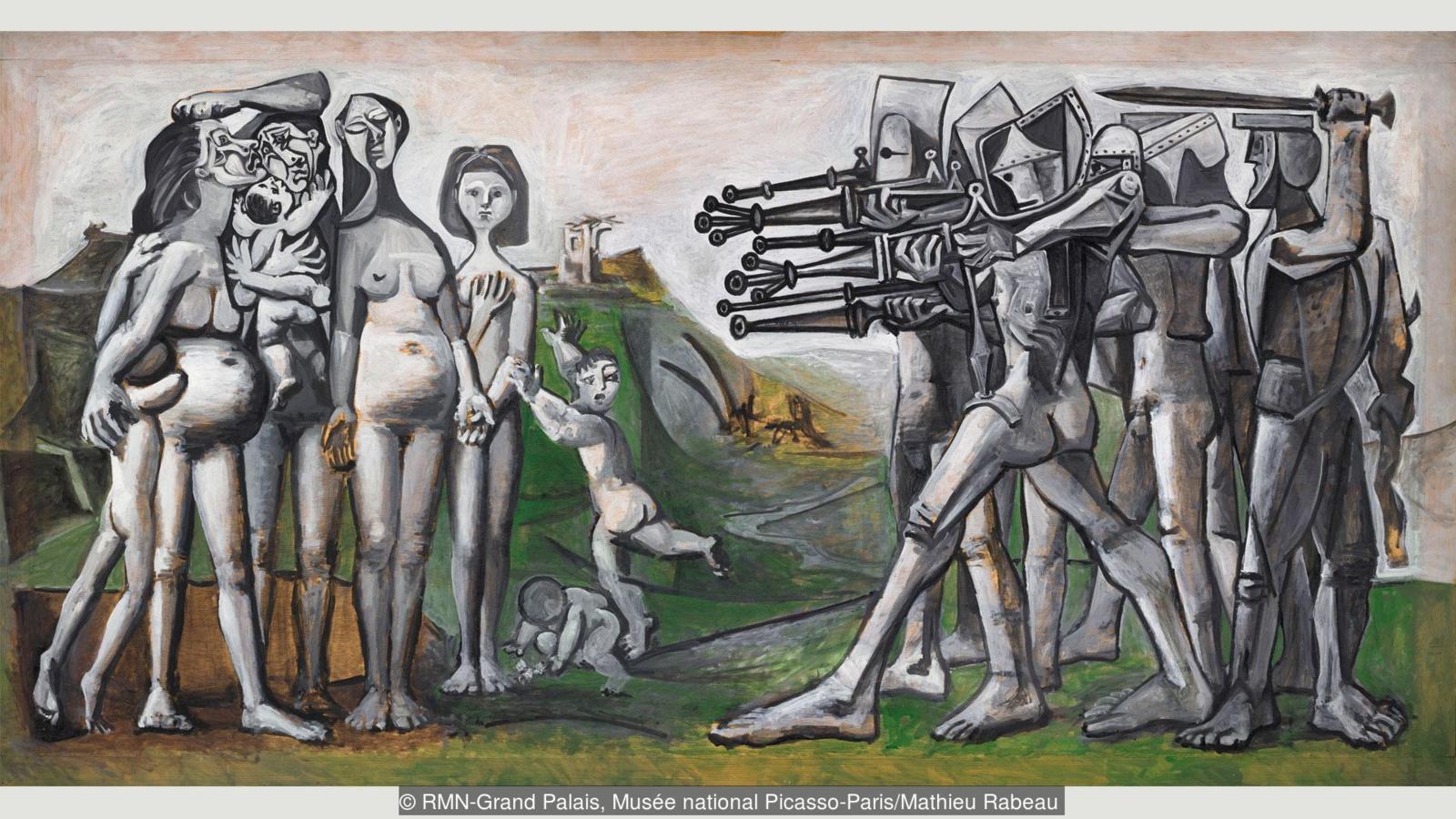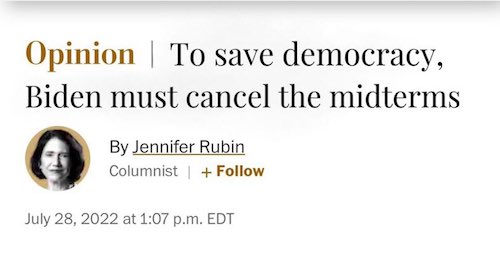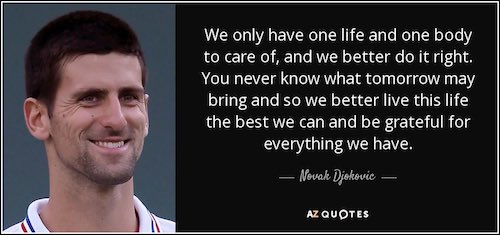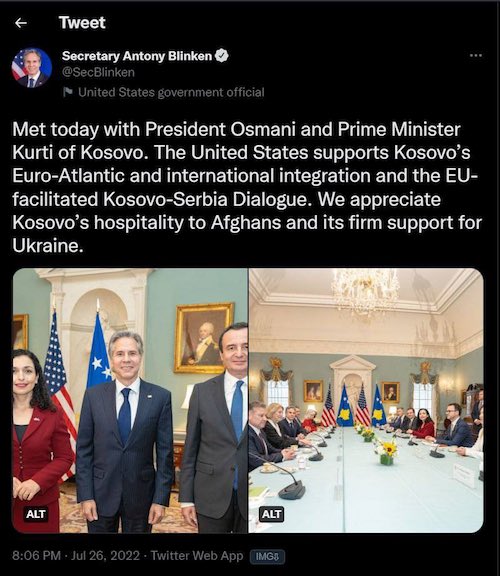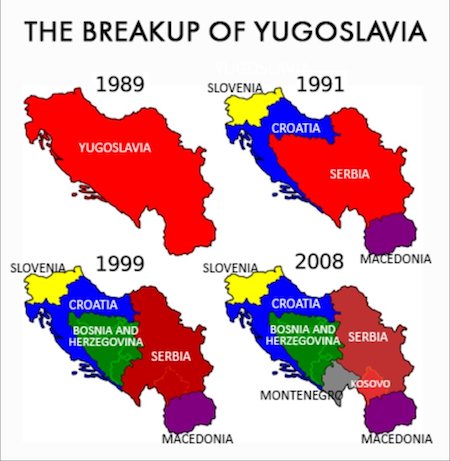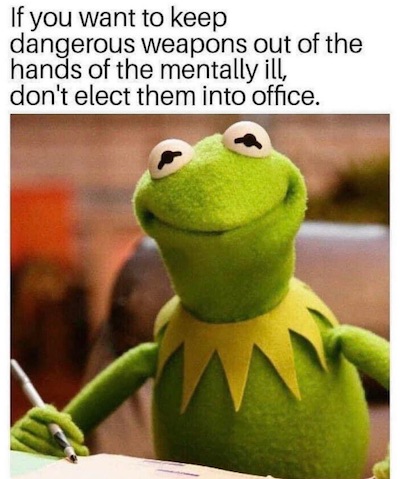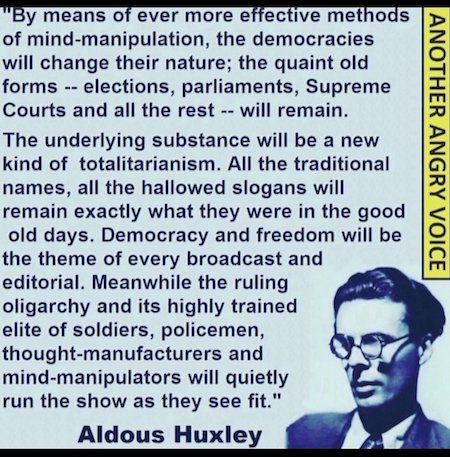
Roy Lichtenstein Forget it! Forget me! 1962

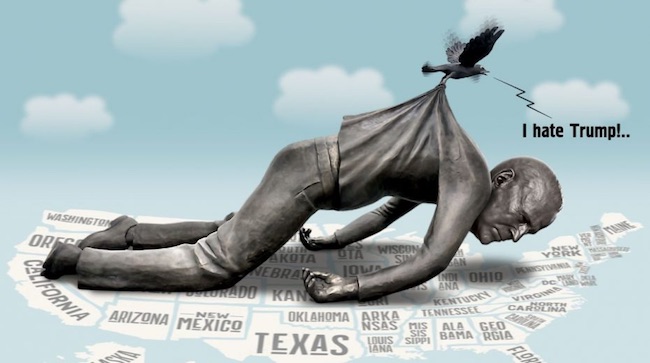

Rogan Dore
Joe Rogan and Jimmy Dore laugh at the media's coverage of President Joe Biden following his disastrous debate performance.@joerogan: "When you see Biden, 'We beat Medicare.' And they go, thank you, Mr. President. How is that real? The guy locks up like Windows 95, stammers for… pic.twitter.com/3HY5mMApsE
— KanekoaTheGreat (@KanekoaTheGreat) July 5, 2024

Tucker
Tucker Carlson on who's really in charge: "They've mismanaged all the big things, the things that matter, the economy or foreign policy and they've destroyed the family too…group I'm highly familiar with that have wrecked everything but are still currently in charge…it's a… pic.twitter.com/BJ31NI3WBl
— Camus (@newstart_2024) July 5, 2024

Vindman
VINDMAN: Many people forget is that Col. Alexander Vindman was listening in on Trump's call with Zelensky when the president asked Ukraine to get to the bottom of what really happened with Biden and Burisma. Vindman, a staunch critic of Trump, worried that the investigation might… pic.twitter.com/zz9ZKcjJlU
— @amuse (@amuse) July 5, 2024



Galloway Ritter
War with Hezbollah will destroy Israel!
Scott Ritter, famous political analyst: Israel will be destroyed by war with Hezbollah. Because this will not be just a war with Hezbollah.
The era of Zionism is over, finished and discredited as an ideology. The world will not tolerate… pic.twitter.com/oxu4piMVsX
— S p r i n t e r F a m i l y (@SprinterFamily) July 4, 2024


“..next week’s schedule: Biden will host a three-day NATO summit in Washington that starts on Tuesday. As part of that event, he will conduct a rare solo press conference..”
• Incoherence Day: Biden’s Fourth (ZH)
Thursday’s dark comedy started with an appearance on Philadelphia’s WURD radio, which features a format categorized as “urban talk.” Having already boasted about appointing the first black woman to the Supreme Court and selecting the first black woman as vice president, Biden short-circuited and said, “I’m proud to be, as I said, the first vice president…the first black woman to serve with a black president.” In the same interview, Biden completely garbled his reminiscing about John F. Kennedy, Jr serving as a barrier-breaking inspiration to Biden’s younger self: “I remember, as a Catholic kid growing up up in an area where we didn’t like, Catholics didn’t get — I’m the first president to be elected statewide in the state of Delaware when I was a kid. Well, you know, I was, I looked at John Kennedy and said, ‘Well, he got elected. Why can’t I get elected?
Later, in remarks to military families at the White House, Biden twice showcased another of his chronic symptoms, as he started a train of thought, only to quickly abandon it. The first example came as he attempted to trot out the disputed allegation that then-President Trump called dead American soldiers in a French World War I cemetery “losers” and “suckers.” After his anecdote stalled, Biden tried recovering with one of his all-purpose rhetorical crutches, shouting, “We gotta just remember WHO IN THE HELL WE ARE…We’re the UNITED STATES OF AMERICA!” Another dead-end sentence came as he seemed to be making an exaggerated claim about putting himself in danger alongside service members in foreign conflicts:
BIDEN to the troops: "I've been all over the world with you. I've been in and out of battles, anyway…" pic.twitter.com/vXo4muna89
— RNC Research (@RNCResearch) July 4, 2024
In another radio interview meant to reach black audiences, Biden appeared on the nationally syndicated Earl Ingram Show. “Despite the low-pressure nature of the interview, the president at times spoke haltingly as he delivered his rapid-fire answers,” the New York Times reported. “In the 17-minute interview, he sometimes stopped himself in the middle of an answer.” For example, in the middle of a sentence about Trump’s proposed tariffs, Biden abandoned the venture, saying, “…anyway, just, I don’t want to get too wrapped up in it, really.” With his flub-filled Fourth in the books, Biden’s next major opportunity to shore up voters’ perception of this mental soundness comes tonight, when appears in his first sit-down interview since last week’s debate disaster. The interview with ABC’s George Stephanopoulos will be recorded during the day amid Biden campaign stops in Wisconsin and then aired in an 8pm ET “primetime special.”
To counter suspicions that the network will edit the interview to Biden’s benefit, ABC has committed to releasing a transcript of the entire interview sometime today or this evening. As we noted yesterday: “Readers will naturally view the idea of a Stephanopoulos interview with justifiable wariness of soft-pitch questions and friendly editing. However, we’re in a different political world than last week… Given the debate-triggered earthquake that’s altered the leftist landscape, Stephanopoulos will likely feel significant pressure to act something like a real journalist, for once.” As Biden staggers from one risky public appearance to the next, a white-knuckled Team Biden is surely sweating next week’s schedule: Biden will host a three-day NATO summit in Washington that starts on Tuesday. As part of that event, he will conduct a rare solo press conference, which could well prove the most treacherous challenge he’s faced since last week’s debate — and perhaps even more so.

“It’s very, very rare in a democracy that the person you run for an election is someone that you all know can’t lead the country for four more years..”
• European Leaders ‘Stunned’ By Biden’s Accelerated Aging – WaPo (RT)
US President Joe Biden has been displaying worrying signs of “accelerated aging” in recent months and these changes shocked European leaders who met him at the Group of Seven (G7) summit in Italy last month, the Washington Post reported on Friday. The outlet cited 21 people who spoke on condition of anonymity. Longstanding concerns over Biden’s health came into focus following what was widely perceived as a disastrous performance in his first debate with Republican rival Donald Trump last week. While the Biden camp claimed the president had caught a cold, his performance reportedly panicked Democratic officials and donors, with some even suggesting he needed to be replaced as the party’s candidate for the November election. According to the Post, numerous aides, foreign officials, donors and members of Congress say the president has “slowed considerably.” They pointed to how he moves more slowly, speaks more softly and loses his train of thought more often.
During the G7 summit in Italy last month, “several” European leaders “came away stunned” by how much older Biden seemed since their last interactions with him, according to officials that spoke to the outlet. In some cases, they said it had been mere months since those people had previously seen the US leader.“People were worried about it,” one said. Another reported that leaders had come to the conclusion that Biden “cannot win in November.” Some officials admitted that, while they had brushed off concerns over Biden’s health before the debate with Trump, they are now questioning his abilities. Concerns were also raised after a recent immigration event in the White House, according to the report. Some pointed out Biden’s obvious frailty, with one describing his performance that day as “terrifying.” The Post said its sources “largely” did not question Biden’s mental acuity, with several White House officials insisting that he continues to be fully cognizant on complicated policy matters and can easily recall facts from previous meetings.
However, staffers said that most of Biden’s high-priority meetings and events were scheduled for midday, when he is at his best. On Thursday, the New York Times reported that Biden had admitted to Democratic donors that he needed more sleep and less work, preferring to avoid any events past 8pm. Ian Bremmer, president of the Eurasia Group, told the Post that even if he won, European leaders don’t expect Biden to be able to run the country for another term. “It’s very, very rare in a democracy that the person you run for an election is someone that you all know can’t lead the country for four more years,” Bremmer said. A CBS News-YouGov poll following the face-off with Trump found 72% of respondents said they believe Biden does not have the mental and cognitive health to serve as president, while 49% said the same about Trump.

“Not only am I campaigning, but I’m running the world, and that’s not hyperbole.”
• Biden Says Every Day Is A ‘Cognitive Test’ For Him (RT)
US President Joe Biden tried to dispel concerns over his age and cognitive abilities after his lackluster performance during last week’s debate against Donald Trump, in an interview with ABC News on Friday. In the highly anticipated sit-down with George Stephanopoulos, the 81-year-old leader explained the debate fiasco as entirely “my fault, no one else’s fault,” insisting that it was simply a “bad episode” because he was “exhausted” and “sick” with a “bad cold” – and in no way an indication of any serious condition. Biden said he has “medical doctors trailing me everywhere I go” and after the debate they told him he was “exhausted,” but nothing more serious. “I have an ongoing assessment of what I’m doing. They don’t hesitate to tell me if something is wrong.” When asked directly whether he was ready to take a neurological test to prove to Americans that he is up to the job, Biden dodged the question by claiming, “I have a cognitive test every single day.”
“Every day I have that test,” Biden reiterated when pressed again. “Not only am I campaigning, but I’m running the world, and that’s not hyperbole.” The entire interview went in circles, with Stephanopoulos repeatedly asking whether Biden believes he is in good enough shape to beat Trump, while Biden kept citing his past record and defiantly rejecting the notion that he could leave the race amid worsening poll numbers. Biden said he did not believe the poll numbers that showed him trailing Trump in the popular vote, claiming that the race is a “toss-up” and that he is the “most qualified person to beat him.” Biden refused to speculate whether he would leave the race if Democratic Party leaders asked him to, noting that he would withdraw only if God told him to do so.

Cheap fakes.
• HuffPo Calls For Biden Campaign To Use AI To Make Him Appear Cogent (MN)
Leftist Biden mouthpiece the Huffington Post published an article Wednesday which literally calls for the Biden campaign to use AI to make fake videos of him looking and sounding normal in an effort to salvage his candidacy. The piece, titled ‘It’s Time For The Biden Campaign To Embrace AI‘ states “After the president’s dismal debate performance, he noted that he ‘might not walk as easily or talk as smoothly as I used to.’ AI could help with this.” “Given the president’s concerning performance last week, it’s time for the Biden campaign to consider leveraging artificial intelligence (AI) to effectively reach the voting public,” it continues, with the author, one Kaivan Shroff, declaring that “the consequences of not taking this approach could be dire.” He goes on to state that Biden is old and can barely speak, suggesting that “AI augmentations and video renderings could serve to smooth out these bumps while allowing the Biden campaign to effectively disseminate true information.”
So, lets get this straight. Mr Shroff is suggesting the Biden team make fake videos where Biden speaks perfectly and looks more than half awake, and pass them off as real to encourage people to vote him in for a second term as President of the country, when in reality he cannot even form coherent thoughts or operate for 90 minutes per day. Incredible. “AI would be a cost-effective and efficient way to communicate his message personally and directly to voters,” Shroff continues, adding “How many times have we heard voters and pundits alike gripe that ‘Biden would be the perfect candidate if he were just 10 years younger?’ With modern technology, this exact deliverable is possible.” He goes on to argue that Biden’s campaign creating fake AI videos would be fine because the likes of The New York Post have shared “cheap fakes”of Biden wandering around looking lost and completely out of it “to make him appear confused or weak.”
The only issue here being, of course, that the so called ‘cheap fake’ videos in question were actually 100% real. No one needs to create fake videos to show Biden looking confused and weak, because he really is. You’ve just admitted that earlier in your extremely stupid article. Even more incredibly, the author then goes on to argue that if the Biden campaign created its own fake videos it would allow them “to respond rapidly to misinformation.” “In a world where misinformation and disinformation spreads virally, often through short-form video content, having the capability to produce polished, articulate responses in real-time could be a game-changer,” he ludicrously proclaims. To summarise, this guy thinks its totally acceptable that the Biden campaign knock up some cheap AI generated fake videos of him appearing fine in order to declare that any real videos of him looking and sounding old, tired and senile are ‘disinformation’. It doesn’t get any more backwards than this.
Incredibly, the article continues, “Until now, it has been almost taken as a given that using AI renderings of the president would violate some ethical baseline of campaigning. In an ideal world that may be so. Yet, what last week’s debate made clear is just how far from any such ideal our current reality is. The greatest moral and ethical imperative for those who care about American democracy should be keeping the man who tried to overthrow it as far away from the White House as possible.” So, your argument is that because Biden is mentally deficient and proved so during the debate, his campaign needs to forget about any remaining morals they have and create fake videos in order to keep Donald Trump from winning because it’ll be the end of democracy… or something. Hell, why not just go the whole hog and steal the election then? Use AI to fake some votes, rig some ballots, swing some states in Biden’s favour… in order to save democracy.

“We can be sure that Trump did not personally initiate those provocative moves. He was obeying the deep state planners and their agenda of pushing confrontation with Russia..”
• Trump Poses As Peacemaker For Ukraine After Stoking The War As President (SCF)
Asked about Trump’s peacemaking offer, President Putin responded politely this week, saying that he believed the American was sincere, but pointed out the lack of detail in Trump’s proposal. That’s the rub. Donald Trump is not known for coherent details. His style is bluster and braggadocio. Taken with a large pinch of salt. Russia’s ambassador to the United Nations, Vassily Nebenzia, was not convinced by Trump’s peace musings. Nebenzia indicated that the Republican candidate lacked the necessary understanding to resolve the conflict. That would involve an intelligent appreciation of history: the relentless expansionism of NATO, the treacherous backsliding by Washington over past security agreements, and the inherent workings of U.S. imperialism as an insatiable aggressor going back to the foundation of NATO 75 years ago. There is more than a suspicion that “the Donald” is merely motivated by superficial electioneering. The former real estate magnate has acumen for tapping popular sentiment.
The two American presidential contenders are neck and neck in the polls with less than four months until election day. Even after Biden’s disastrous TV debate performance last week, Trump has not capitalized on a decisive lead – which reflects how poorly both candidates are perceived by American voters. Polls show that a clear majority of American citizens want the conflict in Ukraine settled by diplomacy. There is widespread misgiving over the enormous amounts of taxpayer money thrown at a regime notorious for its corruption, as well as the visceral fear that the conflict could spiral out of control into a nuclear World War Three. Trump’s talk about brokering a peace deal before he is inaugurated on January 20, 2025, seems to be nothing more than an expedient bet that such a position might be enough to garner a winning edge among undecided voters and get him back to the White House. Nothing wrong with that, one might say. After all, surely some attempt at peaceful diplomacy is better than none, no matter how cack-handed that attempt might be.
The trouble is Trump has no credibility. The last time he was in the White House (2016-20), he proved useless at standing up to the deep state despite his promises to normalize relations with Russia. Admittedly, his presidency was assailed by the baseless Russia-gate hysteria promoted by the U.S. establishment and its servile media to undermine him. Nevertheless, on key issues, Trump showed himself to be a willing instrument for U.S. imperialist interests. A major sign of weakness was Trump’s approval of sending lethal weapons to the Kiev regime. He broke a crucial taboo. Even his predecessor, the Democrat President Barack Obama, had refused to go that far. Obama and his then Vice President Joe Biden oversaw the CIA-backed coup in Kiev in 2014 ushering in a NeoNazi Russia-hating regime. But the sending of lethal U.S. weaponry to that regime was off the cards – so provocative was it deemed. Trump broke that taboo in 2019 when he ordered the supply of $47 million worth of Javelin anti-tank missiles to the NeoNazis.
That move emboldened the Kiev regime to ramp up its aggression against the ethnic Russian population in the Donbass region. That genocidal offensive eventually led to Russia intervening in February 2022 and safeguarding the region as a new part of the Russian Federation. Moreover, it was Trump who scrapped two key arms control measures with Russia, the Intermediate-Range Nuclear Forces Treaty (INF) and the Open-Skies Treaty. We can be sure that Trump did not personally initiate those provocative moves. He was obeying the deep state planners and their agenda of pushing confrontation with Russia. By revoking the INF, the United States has found a legal way to supply medium-range ballistic missiles to Ukraine which are being used to strike Russia’s territory. In that way, arguably, Trump played a pivotal and baleful role in stoking the proxy war in Ukraine that was primed in 2014 under Obama and eventually erupted in 2022 under Biden.

GOP 255 delegates for the electoral college, Dems 243.
• Republican Control In The States Could Give Trump Victory (Vasco)
Among this year’s swing states, Republicans control the political machine in Georgia (government, legislature and history of two of the last three presidential elections), while Democrats control Nevada (with the exception of the government) and Michigan (where they did not win in only one of the last three presidential elections). The other three “swing states” are where control is much more balanced: Democrats hold the governorship and the House of Pennsylvania and have won two of the last three elections there, but Republicans have won one of the last three elections and control the Senate; Democrats govern Wisconsin and have won there in two of the last three presidential elections, but Republicans control both legislative houses and have won in one of the last three elections; and in Arizona, Democrats won one of three elections and hold the government, but Republicans won the other two elections and dominate the legislature.
All of this means that, taking into account control of the state political machine, Republicans are expected to win in all “red states” and in 17 other states, including the “swing state” of Georgia. They will thus be guaranteed 255 delegates for the electoral college, in addition to the total number of delegates that each of these states are entitled to. Democrats, on the other hand, tend to win in all the “blue states” and in 10 more states, including the “swing states” of Nevada and Michigan and the states of Minnesota and Maine, where, unlike all the others, the party that get the majority of popular votes in the state do not automatically elect all delegates, but have their own rules – our calculation takes into account that Democrats control the political machine in these two states, therefore they are able to manage the results of the elections. The Democrats will thus obtain 243 delegates to the electoral college.
For its candidate to be the winner of the presidential elections, a party must have at least 270 delegates in the electoral college. Hence the essential importance of “swing states” where political control is not defined (Pennsylvania, Wisconsin and Arizona). To be elected, it will be enough for Trump to win in just one of them (Pennsylvania), or, if he loses in Pennsylvania, if he wins in the other two. The Democratic candidate will be forced to win in Pennsylvania and in one of the other two key “swing states”. Considering, therefore, the control of the political machine in the states, added to the tendency of greater preference among voters in polls of voting intentions, Donald Trump has a greater chance of being elected president than the Democratic candidate.

“..there’s still plenty of time left for them to destroy the country altogether. Just keep giving American missiles to Ukraine to fire into Russia and see what happens.”
• Who Turned Off the Gaslight? (Kunstler)
Any reality-based thread that happened to leak into public view from independent alt-news reporters was branded by CNN, The New York Times, the WashPo, and many others as “misinformation” — a newish concept produced by a cadre of language Stasi skilled at inverting the meaning of anything to bamboozle the public. It appears that the news media became so invested psychologically in its own dishonest product that it began to believe its own bullshit. Or, at least, they wanted to pretend to believe it. One of the big problems was that absolutely everything they labeled “misinformation” or “conspiracy theory” turned out to be truthful, and that was becoming an inescapable embarrassment. And then the biggest blunder they made was going along with the Deep State’s selection of “Joe Biden” in the very sketchy Super Tuesday primary of 2020. The old grifter had next-to-zero support in all the preceding preliminaries and somehow (abracadabra !) he swept the field.
By then, the Democratic Party, and its public relations arm in the mainstream media, had descended into florid mental illness. Everything they stood for post-World War Two flipped to its opposite. Suddenly, they were against free speech. They weren’t coy about it. They just made-up some new bullshit about free speech being “hate speech.” Similarly, they were against a free press. They went along with all the misinfo / disinfo bullshit the government cooked up and supported its role in suppressing the news. They were no longer anti-war, the party-of-peace. They were now pro-segregation and pro-discrimination (white people need not apply) according to Critical Race Theory (a childishly sketchy doctrine). Most of all, they were no longer skeptical of anything that the leviathan establishment wanted to do, including abridging the liberties of American citizens.
Then there was the campaign to use the most powerful human instinct, sexuality, as a weapon to disorder the minds of American children, leading even to the mutilation of their bodies — a program that unmistakably tipped toward genuine evil, suggesting that actual psychosis lay behind the Cluster-B crypto-Marxism used to justify it. “Joe Biden” was fine with all of that, and the news media was fine with “Joe Biden” and whoever was using him as a front. Of course, it was evident during the 2020 campaign that “Joe Biden” was not up to a job as demanding as Chief Executive of the US government — and that was even apart from the dense criminal web of influence peddling discovered around him and his family, which the news media ignominiously ignored. But now the years have gone by and there’s no hiding “Joe Biden’s” rather gravely diminished mental abilities.
Last week’s debate gave away the game. It had the effect of finally turning off the gaslight that the news media has been shining over the republic lo these many years. They can no longer pretend that this president is anything close to okay in body and mind. They can’t annul the gaslighted public’s delayed realization that they’ve been subject to a concerted program of deliberate lying for a long long time. So now, inveterate pretenders and liars, such as Jake Tapper of CNN and Maggie Haberman of The New York Times — and many others — have to pretend that they were innocently duped into supporting all the turpitudes of the Democratic Party / Deep State axis-of-evil. It is really hard to imagine that they can successfully rehabilitate their reputations. They have done immense harm to our country. It’s hard to see how the Democratic Party might survive, too, no matter who they finally put up for election this year. Of course, there’s still plenty of time left for them to destroy the country altogether. Just keep giving American missiles to Ukraine to fire into Russia and see what happens.

“The Hitchhiker’s Guide to the Government..”
• Rep. Goldman Insists the Country is Safe in the Hands of Others (Turley)
Douglas Adams, author of The Hitchhiker’s Guide to the Galaxy, wrote “The President [of the Galaxy] in particular is very much a figurehead—he wields no real power whatsoever. […] His job is not to wield power but to draw attention away from it.” This week, Rep. Daniel Goldman (D-NY) seemed to be taking the Hitchhiker’s Guide as a guide for government. When asked about the alarming physical and mental decline of President Joe Biden, Goldman suggested that it really does not matter. In responding to a call for Biden’s removal under the 25th Amendment, Goldman suggested that the Republic is safe because it is safely in the hands of people around Biden. It is an argument that flips the 25th Amendment on its head and embraces the idea of a figurehead president. After the Hur report was released noting the diminishment of the President’s faculties, Goldman was one of the most vocal in shouting the Special Counsel down. He went public declaring that the President is “sharper than anyone I’ve spoken to” on public policy issues.
He has continued brushed away the growing calls for President Biden to step aside as incapable of serving another four years. Indeed, some are calling for an investigation into whether he can carry out the duties of his office until January 2025. “So, let’s not just focus on Joe Biden here. Let’s focus on the people around him, the administration, the policies, and most importantly, the appreciation and protection for the rule of law and our democracy that Donald Trump, every single day, has vowed to take down.” He added that Biden is “vibrant” and that “the reality is that Joe Biden has surrounded himself with an incredibly capable team with almost no turnover.” Other Democrats have attempted to avoid the manifest confusion and infirmity of the president. This includes Democrats who repeatedly called for formal action to remove former President Donald Trump under the 25th Amendment, including Reps. Nancy Pelosi, D-Calif.; Pramila Jayapal, D-Wash.; Jamie Raskin, D-Md.; Maxine Waters, D-Calif., and Sen. Chuck Schumer, D-N.Y.
However, it was Goldman who, as usual, came up with the most vertigo-triggering spin.The 25th Amendment was designed to specifically avoid a figurehead presidency where family or aides perform critical functions of the office. That was indeed the concern with presidents like Woodrow Wilson when a stroke left him incapable to function as president. His wife Edith hid the truth from the public and the Congress as she and others carried out his functions. He also had “an incredibly capable team” around him, but they were not elected president. In the meantime, the media is still struggling to explain to the public why they did not disclose the President’s condition earlier while promulgating the “cheap fake” narrative. For weeks heading into the debate, media outlets repeated the claim that videos showing Biden’s confusion were false and misleading. Some are now reportedly admitting that they did not want to confirm “right-wing media” accounts — an admission of shaping the news for political purposes.
The greatest threat to President Biden may ultimately be the political calculus. For most of these members, their loyalty to Biden ends at the point that he endangers their own hold on power. A couple dozen members are reportedly preparing a letter calling for possible removal in the hope that they can replace Biden with someone who has a better chance of beating Trump. It is no easy feat, but Democratic operatives are furiously working out the complications under federal election laws and state laws. In the meantime, the 25th Amendment process is looming. More citizens may become convinced by what Pelosi said about then President Donald Trump: “Congress has a constitutional duty to lay out the process by which a president’s incapacity and the president of any party is determined…A president’s fitness for office must be determined by science and facts.”

Don’t you dare talk peace!
• Orban’s Surprise Visit To Moscow Sparks Fury In Brussels (RT)
Hungarian Prime Minister Viktor Orban unexpectedly visited Russia on Friday and met with President Vladimir Putin to discuss ways to resolve the Ukraine conflict. The surprise trip caused major outrage among Orban’s fellow EU leaders, as it came only days after the Hungarian premier made a similar unannounced trip to Ukraine. Hungary holds the rotating EU presidency for the remainder of this year. Orban, however, has claimed that he doesn’t require any sort of mandate from Brussels in order to promote peace, noting that his discussions cannot be considered official negotiations. Orban said his trip had been the first step to restoring dialogue. A critic of Western military aid to Ukraine, the Hungarian premier said he recognized he had no EU mandate for the trips but that peace could not be achieved “from a comfortable armchair in Brussels.” “We cannot sit back and wait for the war to miraculously end,” he wrote on X (formerly Twitter) before meeting Putin.
Orban visited Kiev earlier in the week, where he urged Vladimir Zelensky to seek peace with Russia, arguing that a ceasefire could serve as a first step in the right direction. The Ukrainian leader didn’t take his proposal well, Orban said later. Kiev insists that only a military victory will result in a “just peace.” The Hungarian premier said he wanted to hear directly from Putin how Russia perceives various peace initiatives, calling it an important step, even though the frank discussion confirmed that there was a major rift between the conflicting sides. Putin and Orban discussed the “shortest way out” of the conflict, which the latter later revealed to journalists. Moscow’s and Kiev’s positions remain very “far apart,” the Hungarian admitted. “A lot of steps have to be taken to get closer to a resolution of the war. Still, we’ve already taken the most important step – establishing the contact, and I will continue to work on this in the future,” Orban stated. Putin has told Orban that he presented his vision of how the conflict can be resolved, in a keynote speech at the Foreign Ministry last month, and said he is prepared to discuss its nuances.
The proposal he was referring to was to suspend hostilities immediately after Kiev renounces its bid to join NATO and orders its troops to pull back from all territories claimed by Moscow. Then a comprehensive discussion of a new security architecture in Europe could be held, Putin suggested. The Ukrainian government has rejected the offer. The Russian president has reiterated Moscow’s readiness to resolve hostilities through negotiations. The Ukrainian leadership, however, appears to be still incapable of abandoning its idea of waging a war “until the end,” Putin noted. Moscow is seeking to reach lasting, sustainable peace rather than opting for a temporary ceasefire or a “frozen conflict” of any sort, the Russian president warned. There should not be a “ceasefire or some kind of pause that the Kiev regime could use to recover losses, regroup, and rearm. Russia is in favor of a complete and final end to the conflict,” Putin stressed.

“But we can be a good tool in the hands of God, we can be a good tool in the hands of people who want peace..”
• I Don’t Need A Mandate To Promote Peace – Orban (RT)
Hungarian Prime Minister Viktor Orban has defended his peacemaking efforts after a senior EU official criticized his purported plans to travel to Russia. Orban, who visited Kiev earlier this week and urged Ukrainian leader Vladimir Zelensky to consider an immediate ceasefire, will pay a visit to the Russian capital on Friday, media reports have speculated. European Council President Charles Michel condemned the purported trip, claiming in a post on X (formerly Twitter) on Thursday that despite holding the rotating EU presidency, Hungary “has no mandate to engage with Russia on behalf of the EU.” “The European Council is clear: Russia is the aggressor, Ukraine is the victim. No discussions about Ukraine can take place without Ukraine,” the senior bureaucrat added.
During his weekly interview with Radio Kossuth on Friday morning, Orban rejected the notion that he should not vie for peace. “What I do looks like negotiations in format, because we sit at tables and discuss issues, but we don’t negotiate,” he explained. “That’s why I don’t even need a mandate, because I don’t represent any party.” Hungary is aware of its relatively limited political clout and expects larger powers to eventually hold peace talks to end the Ukraine conflict, he said. “But we can be a good tool in the hands of God, we can be a good tool in the hands of people who want peace,” the prime minister added.
The Hungarian leader said opinion polls showing support among EU citizens for continued backing of Kiev do not correctly reflect their attitudes. Everyday people are worried about the economic cost of the conflict because EU taxpayers’ money is being spent on Ukraine, he argued. Orban neither confirmed nor denied plans for a Moscow visit during the interview. Another pro-Kiev politician, Polish Prime Minister Donald Tusk, previously expressed disbelief that the Hungarian leader could make the trip. “The rumours about your visit to Moscow cannot be true @PM_ViktorOrban, or can they?” he asked in an X post. Russian President Vladimir Putin has offered Kiev a ceasefire in exchange for Ukraine renouncing its bid for NATO membership and withdrawing its troops from Russian territory that it lays claim to. Kiev has insisted it will not accept any outcome in which it does not control all the land it considers Ukrainian.
You cannot make peace from a comfortable armchair in Brussels. Even if the rotating EU-Presidency has no mandate to negotiate on behalf of the EU, we cannot sit back and wait for the war to miraculously end. We will serve as an important tool in making the first steps towards… pic.twitter.com/5pqREmP8EN
— Orbán Viktor (@PM_ViktorOrban) July 5, 2024

“Moscow is seeking to reach lasting, sustainable peace rather than opting for a temporary ceasefire or a “frozen conflict” of any sort..”
• Orban and Putin Discuss ‘Shortest Way Out’ Of Ukraine Conflict (RT)
Talks between Russian President Vladimir Putin and Hungarian Prime Minister Viktor Orban on Friday revolved around finding the “shortest way out” of the Ukraine conflict, the latter revealed during a joint press conference following the closed-doors negotiations. Moscow’s and Kiev’s positions remain very “far apart,” Hungary’s PM admitted, citing his recent trip to Kiev to meet the Ukrainian leadership. “A lot of steps have to be taken to get closer to a resolution of the war. Still, we’ve already taken the most important step—establishing the contact, and I will continue to work on this in the future,” Orban stated. The enduring conflict between Russia and Ukraine is affecting the broader European region, Orban noted, adding that the continent has enjoyed the most rapid and sustainable development only during peacetime.
“As I’ve already told Mr President, Europe needs peace. Yet this peace will not emerge by itself, we must work to reach it,” the visiting premier said. The Russian president has reiterated Moscow’s readiness to resolve the hostility through negotiations. The Ukrainian leadership, however, appears to be still incapable of abandoning its idea of waging a war “until the end,” Putin noted. Moscow is seeking to reach lasting, sustainable peace rather than opting for a temporary ceasefire or a “frozen conflict” of any sort, the Russian president warned. There should not be a “ceasefire or some kind of pause that the Kiev regime could use to recover losses, regroup, and rearm. Russia is in favor of a complete and final end to the conflict,” he stressed.

While Orban talks peace…
• NATO Members To Give Ukraine $43 Billion in Military Aid for 2025 (Antiwar)
NATO allies have agreed to pledge $43 billion in military aid for Ukraine, which will be provided next year, Reuters reported on Wednesday. NATO Secretary-General Jens Stoltenberg was looking for the alliance to make a multi-year commitment to ensure long-term support for the proxy war, but the allies did not agree. Instead, they will re-evaluate military aid for Ukraine each year. The agreement says that NATO allies will “aim to meet this pledge through proportionate contributions.” If the $43 billion is funded based on how much each member contributes to NATO, most of the burden would be on the US since it pays for about two-thirds of the alliance’s budget. The $43 billion is part of a slew of measures NATO will announce at its summit next week in Washington. NATO is also expected to station a civilian official in Kyiv and establish a new command in Germany that will oversee military aid and training for Ukraine, taking over duties currently overseen by the US.
While planning to provide tens of billions in new military aid, NATO will also tell Ukraine that it’s too corrupt to join the alliance. The Telegraph reported this week that the alliance will release a communique calling on Ukraine to take more anti-corruption steps before talks on its NATO membership could progress. President Biden has frequently cited Ukraine’s corruption as a reason why the country couldn’t join NATO. But that hasn’t stopped him from providing over $100 billion in aid to Ukraine, which includes tens of billions in the form of direct budgetary aid that funds the government.

“..the only countries the U.S. really trusts are the “Five Eyes.”
• Trusting the ‘Five Eyes’ Only (Michael Klare)
Wherever he travels globally, President Biden has sought to project the United States as the rejuvenated leader of a broad coalition of democratic nations seeking to defend the “rules-based international order” against encroachments by hostile autocratic powers, especially China, Russia, and North Korea. “We established NATO, the greatest military alliance in the history of the world,” he told veterans of D-Day while at Normandy, France on June 6th. “Today… NATO is more united than ever and even more prepared to keep the peace, deter aggression, defend freedom all around the world.” In other venues, Biden has repeatedly highlighted Washington’s efforts to incorporate the “Global South” — the developing nations of Africa, Asia, Latin America, and the Middle East — into just such a broad-based U.S.-led coalition. At the recent G7 summit of leading Western powers in southern Italy, for example, he backed measures supposedly designed to engage those countries “in a spirit of equitable and strategic partnership.”
But all of his soaring rhetoric on the subject scarcely conceals an inescapable reality: the United States is more isolated internationally than at any time since the Cold War ended in 1991. It has also increasingly come to rely on a tight-knit group of allies, all of whom are primarily English-speaking and are part of the Anglo-Saxon colonial diaspora. Rarely mentioned in the Western media, the Anglo-Saxonization of American foreign and military policy has become a distinctive — and provocative — feature of the Biden presidency. To get some appreciation for Washington’s isolation in international affairs, just consider the wider world’s reaction to the administration’s stance on the wars in Ukraine and Gaza.
Following Russia’s invasion of Ukraine, Joe Biden sought to portray the conflict there as a heroic struggle between the forces of democracy and the brutal fist of autocracy. But while he was generally successful in rallying the NATO powers behind Kyiv — persuading them to provide arms and training to the beleaguered Ukrainian forces, while reducing their economic links with Russia — he largely failed to win over the Global South or enlist its support in boycotting Russian oil and natural gas.
Despite what should have been a foreboding lesson, Biden returned to the same universalist rhetoric in 2023 (and this year as well) to rally global support for Israel in its drive to extinguish Hamas after that group’s devastating October 7th rampage. But for most non-European leaders, his attempt to portray support for Israel as a noble response proved wholly untenable once that country launched its full-scale invasion of Gaza and the slaughter of Palestinian civilians commenced. For many of them, Biden’s words seemed like sheer hypocrisy given Israel’s history of violating U.N. resolutions concerning the legal rights of Palestinians in the West Bank and its indiscriminate destruction of homes, hospitals, mosques, schools, and aid centers in Gaza. In response to Washington’s continued support for Israel, many leaders of the Global South have voted against the United States on Gaza-related measures at the U.N. or, in the case of South Africa, have brought suit against Israel at the World Court for perceived violations of the 1948 Genocide Convention.
In the face of such adversity, the White House has worked tirelessly to bolster its existing alliances, while trying to establish new ones wherever possible. Pity poor Secretary of State Antony Blinken, who has made seemingly endless trips to Asia, Africa, Europe, Latin America, and the Middle East trying to drum up support for Washington’s positions — with consistently meager results. Here, then, is the reality of this anything but all-American moment: as a global power, the United States possesses a diminishing number of close, reliable allies – most of which are members of NATO, or countries that rely on the United States for nuclear protection (Japan and South Korea), or are primarily English-speaking (Australia and New Zealand). And when you come right down to it, the only countries the U.S. really trusts are the “Five Eyes.”

Next one to use the term Game-Changer will be drawn and quartered.
• Why the SCO Summit in Kazakhstan Was a Game-Changer (Pepe Escobar)
It’s impossible to overstate the importance of the 2024 summit of the Shanghai Cooperation Organization (SCO) this week in Astana, Kazakhstan. It can certainly be interpreted as the antechamber to the crucial BRICS annual summit, under the Russian presidency, next October in Kazan. Let’s start with the final declaration. As much as SCO members state “tectonic shifts are underway” in geopolitics and geoeconomics, as “the use of power methods is increasing, with norms of international law being systematically violated”, they are fully engaged to “increase the SCO’s role in the creation of a new democratic, fair, political and economic international order.” Well, there could not be a sharper contrast with the unilaterally-imposed “rules-based international order”. The SCO 10 – with new member Belarus – are explicitly in favor of “a fair solution to the Palestinian issue”. They “oppose unilateral sanctions”.
They want to create a SCO investment fund (Iran, via acting President Mohammad Mokhber, supports the creation of a SCO common bank, just like the NDB in BRICS). Additionally, members that “are parties to the nuclear Non-Proliferation Treaty stand for compliance with its provisions”. And crucially, they agree that “interaction within the SCO may become the basis for building a new security architecture in Eurasia.” The last point is actually the heart of the matter. That’s proof that Putin’s proposal last month in front of key Russian diplomats was fully debated in Astana – following Russia’s strategic deal with the DPRK de facto linking security in Asia as indivisible with security in Europe. That is something that remains – and will continue to remain – incomprehensible for the collective West. A new Eurasia-wide security architecture is an upgrade of the Russian concept of Greater Eurasia Partnership – involving a series of bilateral and multilateral guarantees and, in Putin’s own words, open to “all Eurasian countries that wish to participate”, including NATO members.
The SCO should become one of the key drivers of this new security arrangement – in total contrast with the “rules-based order” – alongside the CSTO, the CIS and the Eurasia Economic Union (EAEU). The road map ahead of course includes socio-economic integration and the development of international transportation corridors – from the INSTC (Russia-Iran-India) to the China-supported “Middle Corridor”. But the two crucial points are military and financial: “To gradually phase out the military presence of external powers” in Eurasia; and to establish alternatives to “Western-controlled economic mechanisms, expanding the use of national currencies in settlements, and establishing independent payment systems.” Translation: the meticulous process conducted by Russia to deliver a fatal blow to Pax Americana is essentially shared by all SCO members.
President Putin laid down the basic tenets further on down the road when he confirmed the “commitment of all member states to forming a fair world order based on the central role of the UN and commitment of sovereign states to mutually beneficial partnership.” He added, “the long-term goals for further expansion of cooperation in politics, economy, energy, agriculture, high technologies and innovation are stated in the project of development strategy of SCO till 2035.” That’s a quite Chinese approach to long-term strategic planning: China’s five-year plans are already mapped out all the way to 2035. President Xi doubled down when it comes to the leading Russia-China strategic partnership: both should “strengthen comprehensive strategic coordination, oppose external interference and jointly maintain peace and stability” in Eurasia. Once again, that’s Russia-China as leaders of Eurasia integration and the drive towards a multi-nodal world (italics mine; nodal with an “n”).




Biden: “Ho, ho, ho! Happy Independence Day!”
The rehab tour is not going at all well.
— Western Lensman (@WesternLensman) July 5, 2024

Etna
https://twitter.com/i/status/1809013270512058804

Sea lion
https://twitter.com/i/status/1809293898147102793


Support the Automatic Earth in wartime with Paypal, Bitcoin and Patreon.





